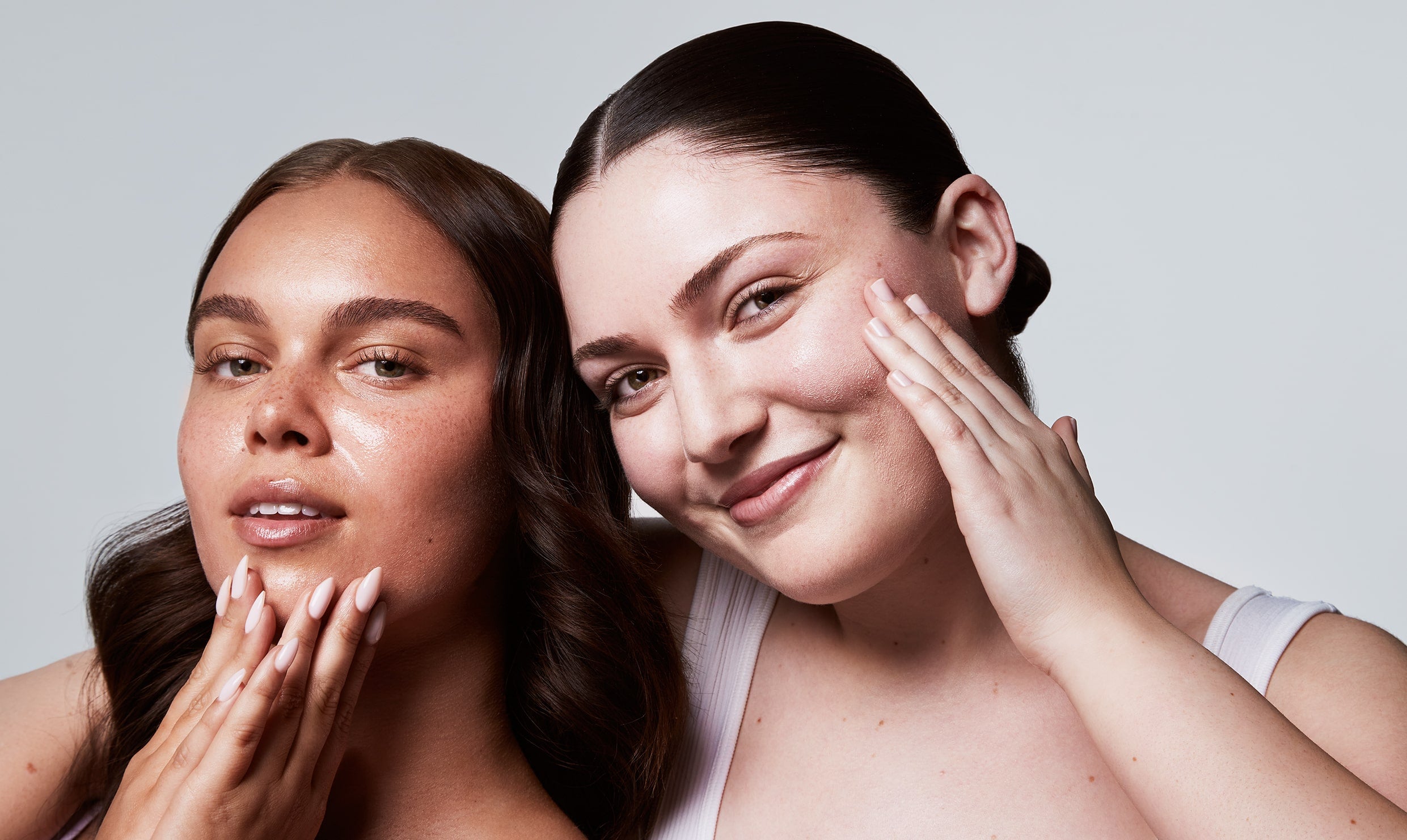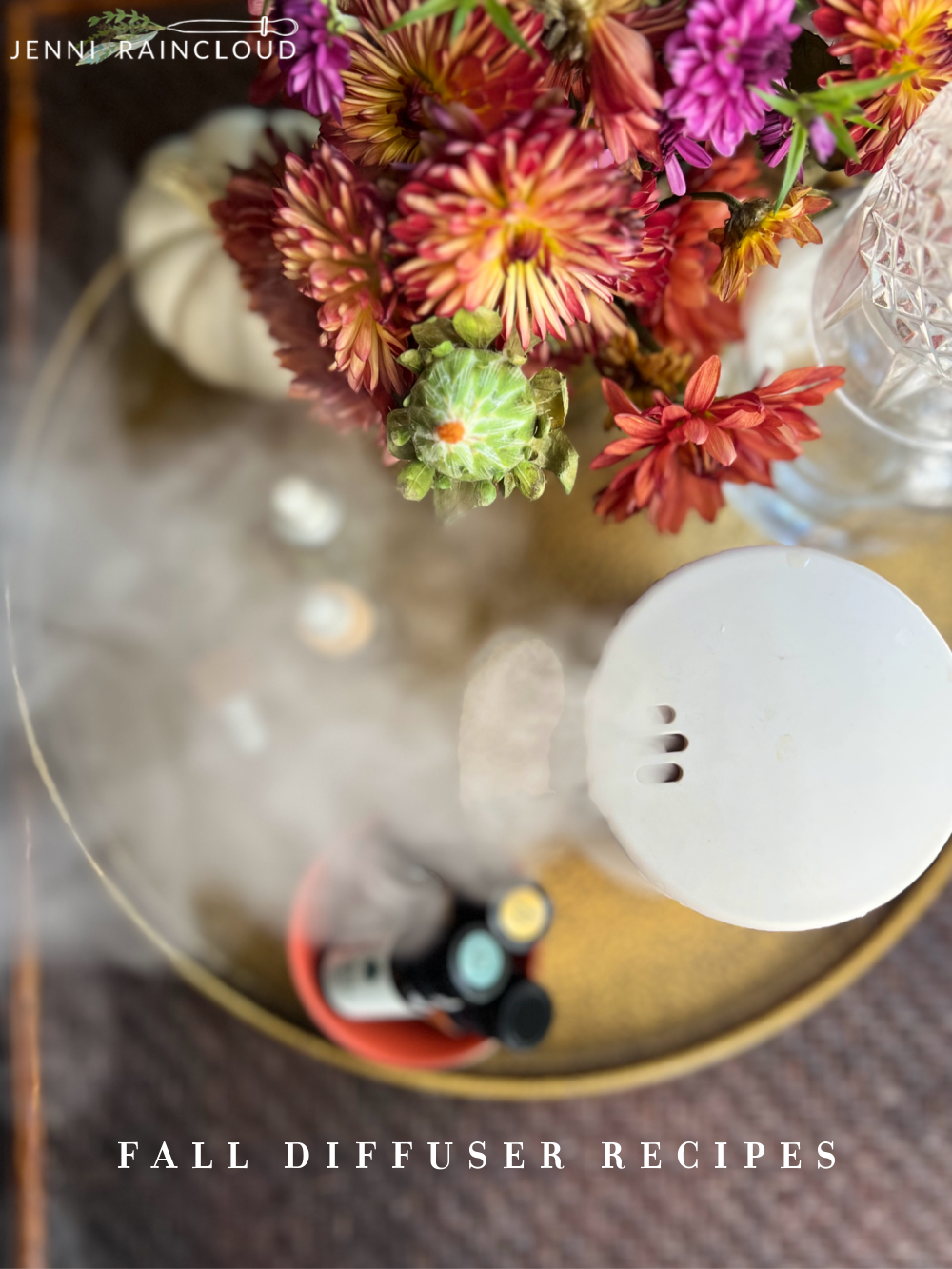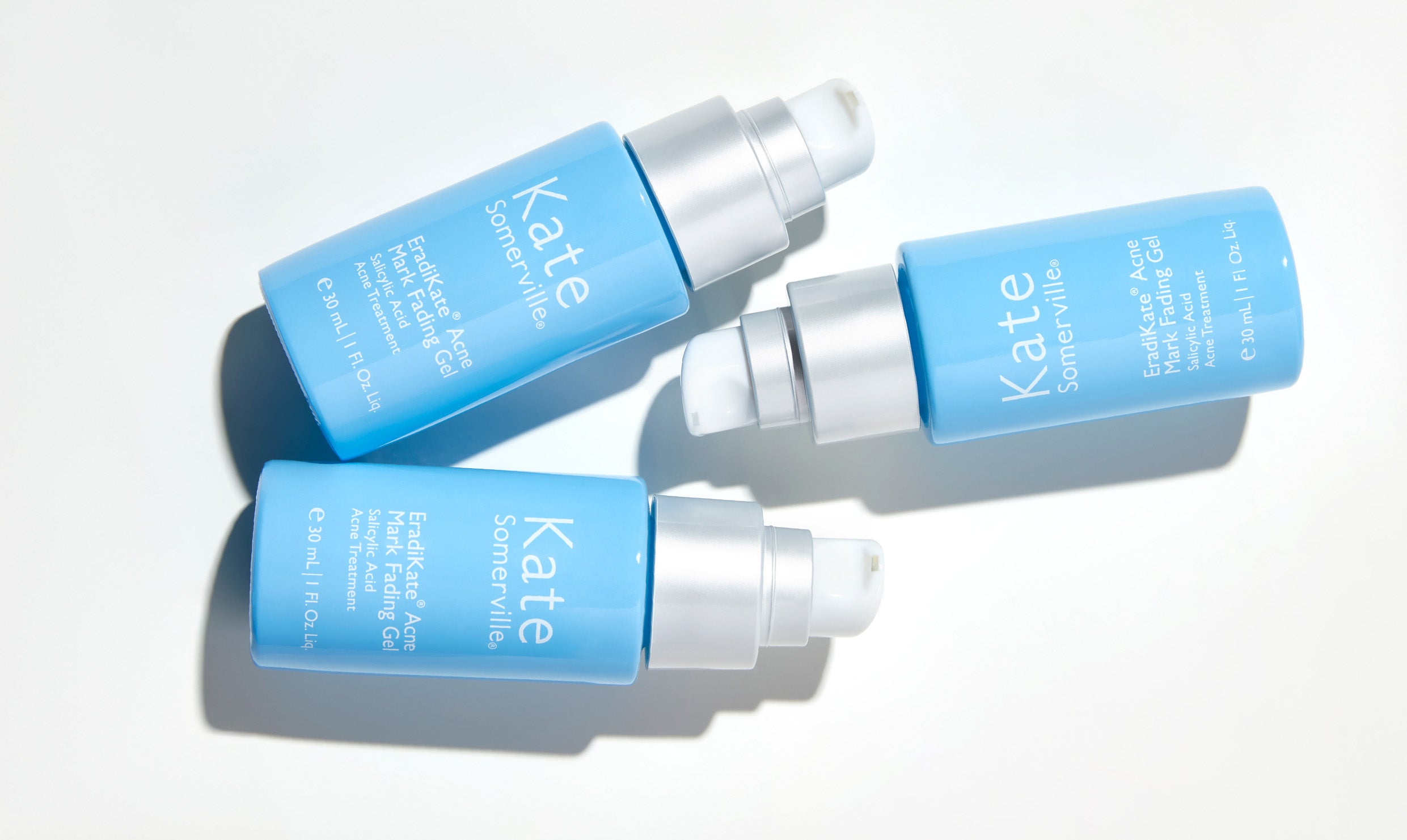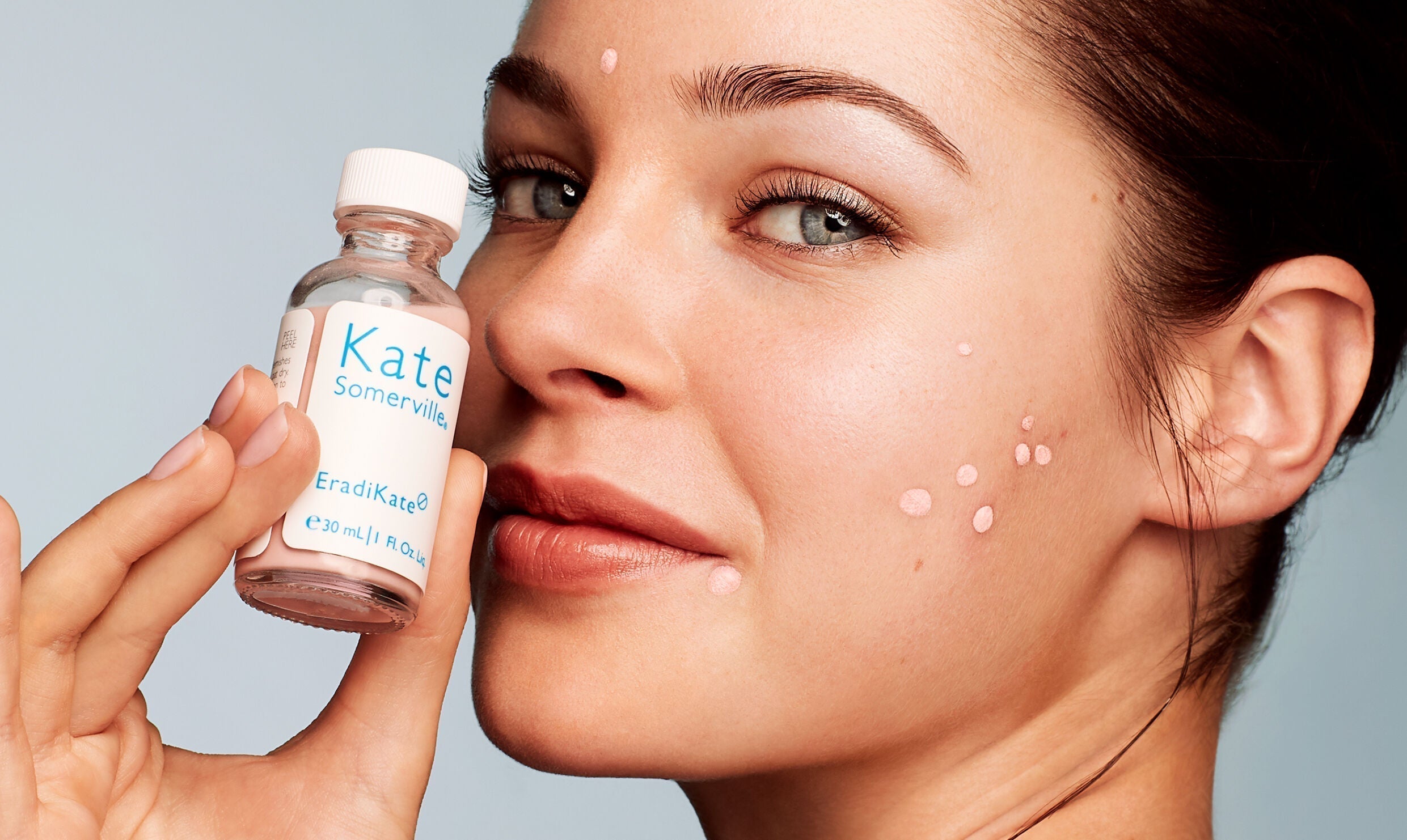
The link between diet and hormonal acne
While acne is formed from obstructed pores that are full of dead skin, oil and bacteria cells[1]That is not the only underlying cause of acne. Many other factors contribute to hormonal acne outbreaks A common guilty is food. Another are hormonesEspecially if you wonder, «How do I know if my acne is hormonal?». While paper plays food in a acne escape It is not entirely clear, the role that hormones play is clear. Unbalanced hormones can cause and worsen the symptoms of many types of acne[2]. Eating certain foods can make the hormonal levels of our body change and, in turn, increase or decrease the amount of oil produced by our bodies. Understand which foods best with your body can help you better balance your hormonal levels, resulting in improving acne symptoms and outbreak prevention. Keep reading to learn how a hormonal acne diet, together with effective Acne treatment productsIt can help you fight your skin problems.
How diet affects your skin
His diet plays a crucial role in the health of his skin. Certain foods can make their hormonal levels fluctuate, which leads to greater oil production and clogged pores. This is particularly true for those who deal with hormonal acne, a type often triggered by hormonal imbalances. Understanding the connection between diet and skin health can help you make informed decisions that promote a lighter complexion.
Hormonal acne and food triggers
Hormonal acne, also known as vulgar acne, is often exacerbated by foods that increase blood sugar and insulin. High blood glucose foods, dairy products and processed foods can trigger hormonal fluctuations, leading to sprouts. On the contrary, a diet rich in anti -inflammatory foods can help with hormonal balance and reduce the severity of acne.
Foods that help prevent hormonal acne
If you are prone to hormonal outbreaks, you may want to study on how to reduce acne with a healthy diet and what acne remedies will work better for you. Next, we describe specific foods that must be included in what we consider the best diet for hormonal acne, a diet that can help balance their hormones and help prevent this type of acne completely.
Foods rich in omega-3 fatty acids
If you suffer from dry skin, fat or intermediate skin, then healthy fat could be the answer you have been looking for. Healthy fats such as Omega-6 and Omega-3 fatty acids are the cell membranes construction blocks of their skin [1]. These fats help maintain healthy and hydrated skin, while adding a softness to their complexion. Add healthy fats in your diet by skipping your dishes in coconut oil, adding more avocados to your weekly menu, or incorporating salmon captured in nature in your next dinner recipe. Foods such as linen and nuts are excellent sources of omega-3 fatty acids and can help reduce acne lesions.
Cruciferous vegetables
Do you seek how to prevent pimples and balance your estrogen levels? A plants -based diet consisting of green leafy vegetables such as choling, arugula, And the broccoli can do this trick! Nutrient rich, these vegetables are fantastic for your skin! His compounds containing sulfur work with his body to help clarify his complexion [2] and detoxify your skin of any shit that may be causing clogged pores.
Anti -inflammatory foods
Anti -inflammatory foods, such as berries, green leafy vegetables and nuts, can help reduce inflammation in the body, which is a key factor in acne development. These foods are rich in antioxidants that fight oxidative stress and support healthy skin.
Probiotics
Establishing healthy habits, such as eating probiotics, is essential to maintain good skin care. The good bacteria found in foods rich in probiotics such as kombucha helps its digestive system to eliminate toxins and excess hormones in the body [3]. Add probiotics to your diet is easy! We recommend starting fermented foods such as Chucrut, Kimchi and Kombucha. If fermented vegetables do not coincide well with their gustatory papillae, do not worry. There are many free sale probiotic supplements that can incorporate into your daily routine.
Foods rich in antioxidants
Foods rich in antioxidants, such as colorful fruits and vegetables, green tea and black chocolate, can protect your skin from damage and reduce inflammation. These foods help neutralize free radicals and support skin repair, contributing to a lighter complexion.
Food to avoid hormonal acne
Dairy
The first step in a hormonal acne diet is to identify food to which it can have a sensitivity. Dairy is a common guilty of food sensitivity. In addition, more and more studies show a link between dairy consumption and acne shoots[3]. Even if you do not consume milk and cheese daily, you are still consuming some dairy. Many processed foods contain dairy. If you point to a diet without dairy, be sure to consult the food packaging labels to obtain a statement of allergens. This will tell you if milk, butter or cheese is an ingredient.
Another easy way to achieve a diet without dairy is exchanging regular cow’s milk for plants -based dairy products. Many dairy products can easily be made from alternative sources such as anacardos, almonds, coconut, soy and even peas. These milk alternatives are not only loaded with nutrients, but they also know very well!
High glycemic foods
Foods at the top of the glycemic index such as pasta, sugary drinks and white bread can also feed acne production in their skin. However, foods with low glycemic rates such as choling and whole grains improve acne[4]. When looking for food to help prevent acne, we suggest adding foods such as quinoa, barley, spinach and lentils to your diet. You will feel better and your skin could start clarifying too.
Fast meals
It is not surprising that fast food is on the list of foods that activate acne. Quick foods are often saturated in unhealthy oils and contain processing foods based on dairy that is known to contribute to acne. By avoiding fast foods and enjoying more homemade meals, you can help your body prevent acne from inside out. In addition, making more meals at home means that you can choose the ingredients you consume. Choosing foods containing healthy fats, probiotics and many nutrients will not only help clarify the current acne, but also can help your body prevent future outbreaks by balancing its hormonal levels.
Processed foods and sugars
Processed foods and sugary sweets are bad for their waist and skin. They can cause inflammation and increase the probability of acne outbreaks. Reducing their consumption of processed foods and opting for natural comprehensive foods can help improve the health of your skin.
Tips for a hormonal diet with acne
Adopting a friendly hormonal diet with acne implies rather than choosing the right foods. Here are some practical tips to help you start.
Planning and preparation of meals
Planning your meals in advance can help you make healthier decisions and avoid impulsive food. The preparation of balanced foods that include a variety of nutrients will ensure that your skin obtains the support you need.
Stay hydrated
Hydration is key to healthy skin. Drinking a lot of water helps eliminate toxins and keeps your skin hydrated. Point to at least eight glasses of water a day to support the health of your skin.
Skin health supplements
Supplements can be a useful addition to your diet. Vitamins such as vitamin A, Vitamin D and Omega-3 supplements can support skin health and help control hormonal acne. Always consult with a health professional before starting any new supplements regime.
Help acne hormonal diet with treatment
While changes in diet can significantly affect hormonal acne, they are more effective when combined with an integral routine of hormonal acne skin care. Here are some additional steps and recommended products to support your skin:
- Daily cleaning routine: Keeping your skin clean is crucial to handle acne. Start your day with the ERADIKATE® 3% Sulfur Diary Cleanser. 3% sulfur serves as an antimicrobial and anti -inflammatory, which helps address bacteria that can cause perioral dermatitis, outbreaks and sebaceous filaments. For night cleaning, use the Goat milk cleaner. This soft but effective cleaner hydrates and relieves the skin, which makes it ideal to eliminate makeup and impurities accumulated throughout the day.
- Morning moisture: After cleaning in the morning, apply the Moisturizer without oil. This light moisturizer is rich in amino acids, which help calm and strengthen the skin barrier. This helps prevent the loss of transepidermal water, which is what increases dryness, sensitivity and aging.
- Sun protection: Protecting your harmful UV rays is essential. Incorporate the Illuminating SPF drops In your morning routine. These drops provide broad spectrum protection and a radiant finish, ensuring that your skin remains protected and luminous throughout the day.
- Skin care routine: At night, follow your cleaning routine with the Vita c Reference and lighting retinol treatment. This powerful serum combines retinol and vitamin C to increase skin renewal, reduce the appearance of acne scars and promote a uniform skin tone. Monitoring with him Moisturizer without oil To keep your skin hydrated during the night without causing outbreaks.
By integrating these products into your daily skin care routine, you can improve the benefits of your hormonal acne diet and achieve healthy and clear skin. In addition, obtaining an adequate amount of sleeping and handling stress can further support the health of your skin and general well -being.
If you follow a strict acne diet plan or have tried other skin care methods and have not seen results, visit your dermatologist. They may answer questions about a possible hormonal imbalance that is causing its type of acne. For now, we invite you to start incorporating the clean food tips that we have previously shared to help clarify hormonal acne problems.
________________________________________
Sources
- https://www.ncbi.nlm.nih.gov/pmc/articles/pmc626744/
- https://healthy.net/2000/12/06/sulfur-2/
- https://perlmanclinic.com/the-benefits-of-probiotics/
- https://www.ncbi.nlm.nih.gov/pmc/articles/pmc6611707/
- https://www.ncbi.nlm.nih.gov/pmc/articles/pmc2585707/
- https://www.ncbi.nlm.nih.gov/pmc/articles/pmc3969667/
- https://www.ncbi.nlm.nih.gov/pmc/articles/pmc6611707/







